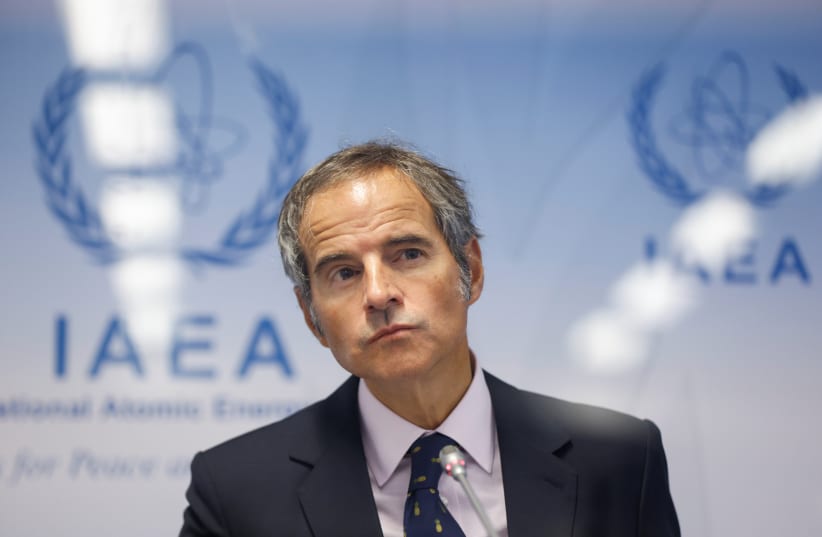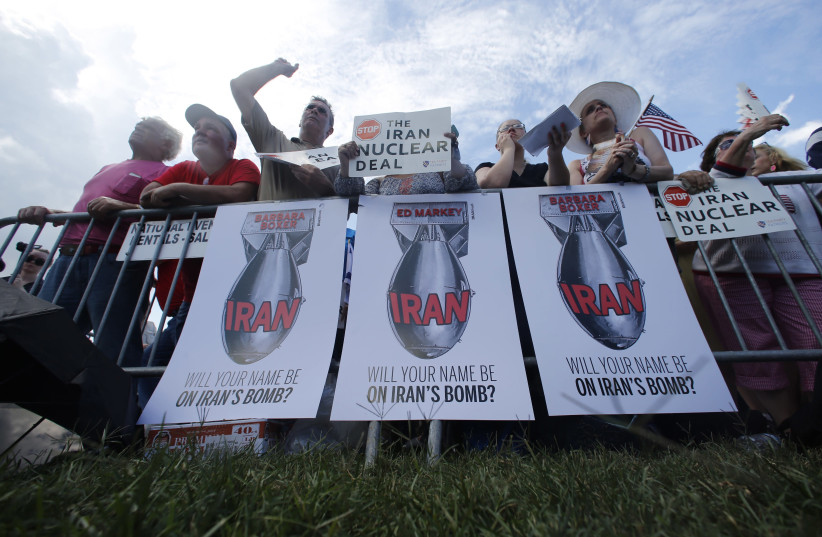IAEA Director-General Rafael Grossi on Wednesday said at a press conference that regarding Iran's nuclear program, that there is a "mass of activity about which we don't know anything."
Grossi's comments came on the sidelines of his speech to the quarterly meeting of the IAEA Board of Governors who he told that he sincerely wants to meet with the Islamic Republic to resolve nuclear violation and oversight issues, but that any such meetings should resolve the outstanding issues and not simply be opportunities to negotiate endlessly.
"I reiterated IAEA's readiness to work with Iran on addressing outstanding safeguards issues. I hope our planned technical meeting with Iran takes place, but I want to stress that this meeting should be aimed at effectively clarifying and resolving those issues," said Grossi.
"I reiterated IAEA's readiness to work with Iran on addressing outstanding safeguards issues. I hope our planned technical meeting with Iran takes place, but I want to stress that this meeting should be aimed at effectively clarifying and resolving those issues."
IAEA Director-General Rafael Grossi
The IAEA chief's comments came only a few hours after Iranian officials said they are not planning on hosting the IAEA for a visit anytime in the near future in a deadlock in talks going back now around half-a-year.
Pressed if the IAEA Board could put greater pressure on Tehran to get results for Grossi, he said, "these things are not going to go away, resolution or no resolution [against Iran] it is their [Iran's] obligation to provide us information we need. We have been trying to do this for many many months unsuccessfully."
Asked if Iran's nuclear program was "out of control," he responded, "I wouldn't say out of control, but their progress continues to show a degree of advancement which is of course something people are noticing. This makes it all the more important and relevant."
Returning to the Iran nuclear deal would be very difficult
He said that returning to the JCPOA 2015 nuclear deal would be very difficult in terms of assuring that the Islamic Republic had not cheated or concealed illegal volumes of uranium given how long the ayatollahs have blinded about 27 IAEA cameras for around six months and that IAEA access to its own data has been restricted by Iran dating back to February 2021.
“The JCPOA now has some fractures,” he told the media.
In his speech to the IAEA Board, he stated, “the Agency has not been able to perform JCPOA verification and monitoring activities in relation to the production and inventory of centrifuges, rotors and bellows, heavy water and uranium ore concentrate (UOC) for almost two years, including some five months when the surveillance and monitoring equipment were not installed.”
However, he told the media that it was not impossible to reconstruct Iran's nuclear activities during 2021-2022 if Iranian officials gave extraordinary access to records and personnel at some later date.
Summarizing this for the IAEA Board, he said, “Any future baseline for such JCPOA verification and monitoring activities would take a considerable time to establish and would have a degree of uncertainty. The longer the current situation persists the greater such uncertainty becomes.”
Grossi also expressed a range of emotions regarding Iran. On one hand, he tried to stay optimistic, but then showed his extreme frustration that he had tried meeting with its officials weekly, monthly, quarterly “here, there, everywhere” without results. By the end of the press conference, he displayed a somewhat resigned and focused determination that he would not stop trying to dialogue, regardless of success or failure.
Speculation has been rife since July-August alternatingly that a return to the JCPOA could be imminent to the idea that talks were indefinitely frozen due to the US midterm elections to a newer idea that there might be a push for a deal before the Republicans take over the US House of Representatives.

